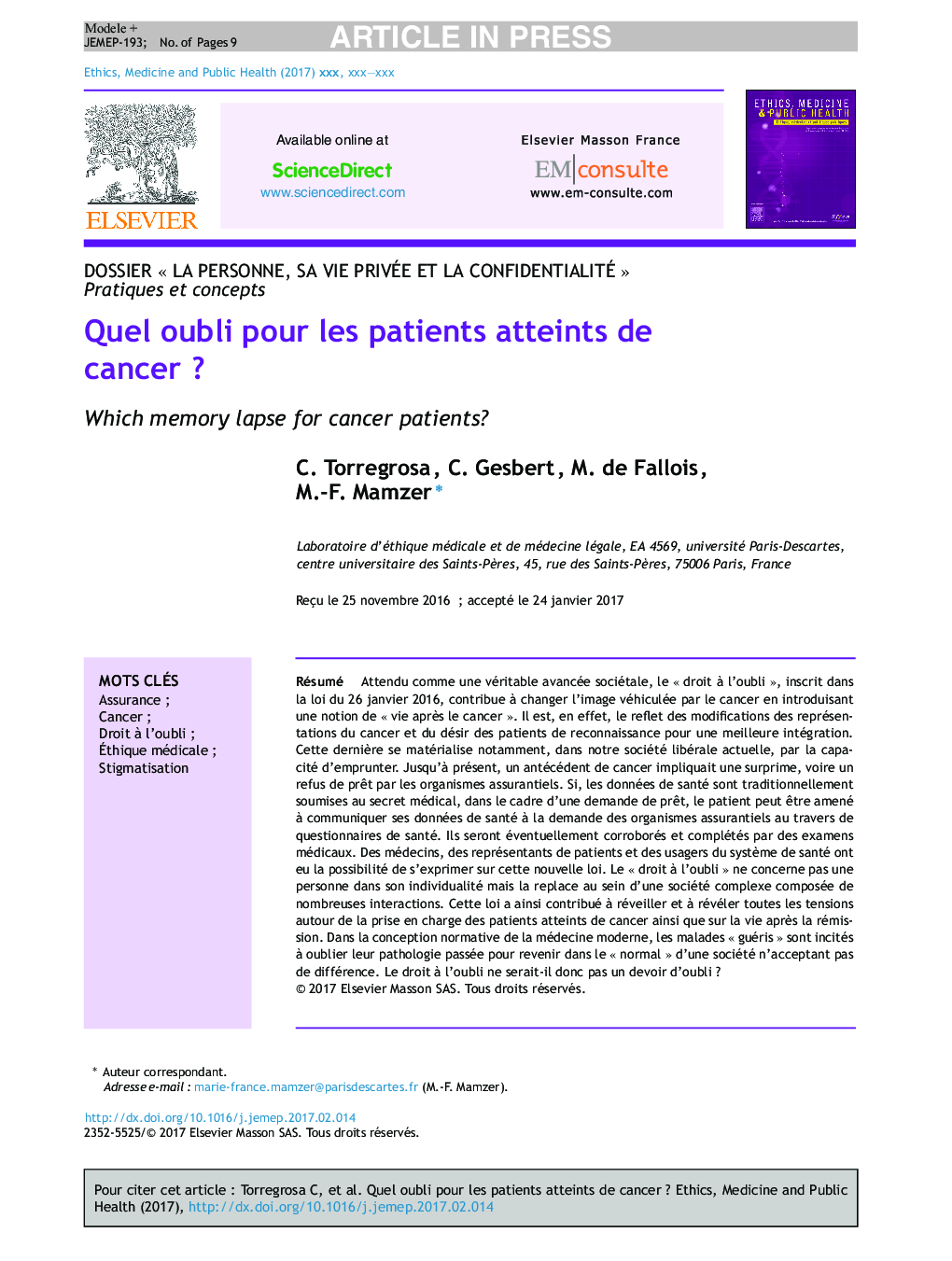| Article ID | Journal | Published Year | Pages | File Type |
|---|---|---|---|---|
| 7531626 | Ethics, Medicine and Public Health | 2017 | 9 Pages |
Abstract
The “right to be forgotten”, inscribed in the law of January 26, 2016Â and expected as a real societal advance, is helping to change the image conveyed by cancer trough the notion of “life after cancer”. It is, in fact, the reflection of the current representations' modifications of the cancer and the patients' desire for recognition and a better integration. In our current liberal society, this is materialized by the ability to borrow. Up until now, a background of cancer has implied a surcharge or even a refusal of loan by the insurance companies. Even if health data are traditionally subject to medical confidentiality, in the context of a loan application, the patient may have to communicate his health data at the request of the insurance organizations through health questionnaires. They would be corroborated and supplemented by medical examinations. Physicians, patient representatives and users of the health care system have the opportunity to comment this new law. The “right to be forgotten” does not concern a person in his or her individuality, but replaces it on a complex society composed of many interactions. This law had helped to awaken and reveal all the tensions surrounding the care of patients with cancer as well as life after remission. In the normative conception of modern medicine, “cured” patients are induced to forget their past pathology and to go back to the “normal” of a society that does not accept difference. Is the “right to be forgotten” a duty to forget?
Keywords
Related Topics
Health Sciences
Medicine and Dentistry
Critical Care and Intensive Care Medicine
Authors
C. Torregrosa, C. Gesbert, M. de Fallois, M.-F. Mamzer,
